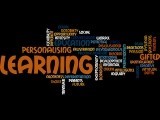One Space is a popular UK social networking site for single parents from Single Parent Action Network (SPAN). It launched a series of free online learning courses recently.
The online learning courses help to up-skill single parents in current work practices so that they can gain and maintain successful employment.
The interactive learning modules are easy to follow and available 24 hours a day to enable lone parents to fit their self-development around family commitments and work at their own pace.
I know and appreciate how well online learning can benefit single parents unable to get childcare for their little ones. I was in that position many years ago now, and completed my first ever degree from Massey University, extramurally, as was available then – through the post). I completed my Bachelor in Business Studies – Accountancy over six years. It fitted in well around my roles as full-time child caregiver and my part-time work with an accountant. I retrained as a teacher when I found accountancy professional development cut too far across family time. Later, I went on to study my Masters in Education via online study while I taught in a full-primary school.
Online education became an interest, and then developed as a major for me during my Masters’ research and study. I developed an online journalism course for gifted seniors who anticipated following this line of work after school. It included role play exercises to familiarise participants with taking an alternative point of view on a topic. By doing so, they had to research a topic much more deeply and their journalism improved as a result.
So – well done One Space, for not only recognising a need for single parents, but for using current technology to improve the chances for those in need.
 Here is a timely reminder to keep an eye on what our gifted students need to be careful of as they participate in open online courses and MOOCs for meeting their needs. So much is available free, outside of the “walled” offerings that are paid for. Watch out that “free” sign doesn’t become more costly than you’d ever imagined.
Here is a timely reminder to keep an eye on what our gifted students need to be careful of as they participate in open online courses and MOOCs for meeting their needs. So much is available free, outside of the “walled” offerings that are paid for. Watch out that “free” sign doesn’t become more costly than you’d ever imagined.

